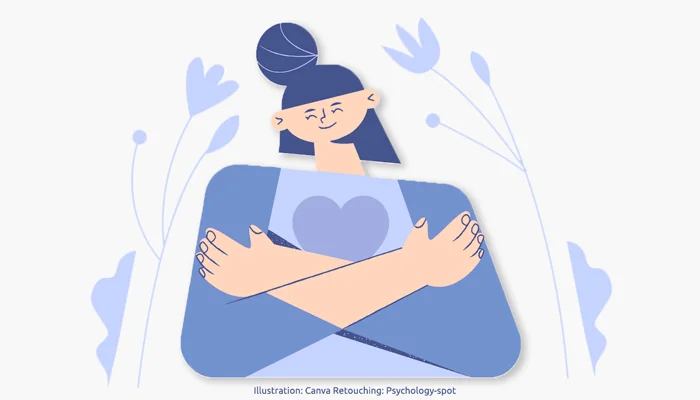
Mental health, an integral part of overall well-being, encompasses our emotional, psychological and social states. Like physical health, mental health can fluctuate throughout life and we may encounter periods where challenges require additional support. Fortunately, there’s a vast array of best practices and coping mechanisms you can integrate into your daily routine to navigate these difficulties and bolster your mental well-being.
Building the physical pillars of resilience
The foundation of positive mental well-being lies in establishing strong self-care habits. Prioritizing adequate sleep is crucial – aim for 7-8 hours per night for adults. Regular exercise is another key element, as it promotes the release of endorphins, natural mood elevators that enhance cognitive function. A balanced diet rich in fruits, vegetables and whole grains provides your body and mind with the essential nutrients they need to perform optimally.
Mindfulness and relaxation techniques for calming the mind
The fast-paced world we live in can easily lead to feeling overwhelmed by stress and anxious thoughts. Mindfulness practices such as meditation and deep breathing exercises can be powerful tools for managing these concerns. Meditation fosters a sense of calm and awareness, allowing you to observe your thoughts and emotions without judgment. Deep breathing exercises activate the body’s relaxation response, lowering blood pressure and slowing the heart rate, leading to feelings of calmness and focus.
Cognitive-Behavioral techniques: Reframing your narrative
Our internal narratives significantly influence our emotions and can often contribute to feelings of anxiety, depression, or negativity. Cognitive-behavioral therapy (CBT) is a widely used treatment approach that equips individuals with the skills to identify and challenge unhelpful thought patterns. By recognizing these patterns and reframing them in a more balanced and realistic way, you can manage difficult emotions and build resilience.
Seeking professional help: Investing in your recovery
Sometimes, self-care practices and coping mechanisms alone may not be sufficient. If you’re struggling with persistent or severe mental health challenges, seeking professional support is a critical step towards recovery. Licensed therapists and counselors can provide valuable guidance and develop personalized treatment plans tailored to your specific needs. Mental health rehabilitation services can also play a vital role in the recovery process. These services offer a comprehensive approach to support individuals on their journey towards wellness.
Typical mental health rehabilitation services include:
- Individual therapy: One-on-one sessions with a therapist to address specific challenges and develop coping mechanisms.
- Group therapy: Sessions with a group of individuals facing similar challenges, fostering a sense of community and shared experiences.
- Skills training: Learning practical skills to manage stress, improve communication and build healthy relationships.
- Medication management: Working with a psychiatrist to determine if medication can be a helpful component of your treatment plan.
- Social skills training: Developing skills for building and maintaining healthy relationships.
- Vocational rehabilitation: Assistance with finding and maintaining employment.
- Support groups: Connecting with individuals facing similar challenges to foster a sense of belonging and shared experiences.
Mental health rehabilitation services can be provided in various settings, including outpatient clinics, inpatient treatment centers, and partial hospitalization programs (PHPs). The specific services offered will vary depending on the program and your individual needs.
Building a strong support network: Fostering connection
Strong social connections are fundamental to mental well-being. Having a network of supportive friends and family members provides a crucial sense of belonging and connection. Talking openly about your struggles and challenges with loved ones can alleviate feelings of isolation and provide valuable emotional support. Additionally, consider joining support groups that connect you with individuals facing similar challenges. Support groups offer a safe space to share your experiences, learn from others and feel less alone.
Prioritizing fun and relaxation: Activities for rejuvenation
Engaging in activities you enjoy is an essential element of self-care. Make time for hobbies, interests and creative pursuits that bring you joy and a sense of fulfillment. Relaxation techniques like listening to calming music, spending time in nature, or taking a relaxing bath can also help reduce stress and promote feelings of well-being. Consider activities that promote mindfulness, such as yoga or spending time in nature.
The power of self-compassion: Cultivating kindness towards yourself
Mental health challenges can often lead to frustration and self-criticism. However, it’s crucial to cultivate self-compassion – treating yourself with kindness and understanding during difficult times. Acknowledge your limitations, celebrate your successes and practice self-forgiveness when you experience setbacks. Everyone makes mistakes, and setbacks are a part of the healing journey, so it’s important to remember that you are not alone.
There is help available, and by incorporating these best practices and coping mechanisms into your life, you can build resilience and navigate mental health challenges towards a brighter future.
Additional resources
Consider reaching out to the following resources for further information and support:
- National Alliance on Mental Illness (NAMI): https://www.nami.org/
- National Institute of Mental Health (NIMH): https://www.nimh.nih.gov/
- Substance Abuse and Mental Health Services Administration (SAMHSA): https://www.samhsa.gov/
By taking an active role in your mental well-being and seeking professional support when needed, you can empower yourself to thrive.
References:
Mahindru, a. et. Al. (2023) Role of Physical Activity on Mental Health and Well-Being: A Review. Cureus; 15(1): e33475.
Nakao, M. et. Al. (2021) Cognitive–behavioral therapy for management of mental health and stress-related disorders: Recent advances in techniques and technologies. Biopsychosoc Med; 15: 16.
Fasihi, T. et. Al. (2017) The correlation of social support with mental health: A meta-analysisElectron Physician; 9(9): 5212–5222.
Keng, S. et. Al. (2011) Effects of Mindfulness on Psychological Health: A Review of Empirical Studies. Clin Psychol Rev; 31(6): 1041–1056.
Neff, K. D. (2009) The Role of Self-Compassion in Development: A Healthier Way to Relate to Oneself. Hum Dev; 52(4): 211–214.
Pressman, S. D. et. Al. (2009) Association of Enjoyable Leisure Activities With Psychological and Physical Well-Being. Psychosom Med; 71(7): 725–732.




Leave a Reply